Search This Blog




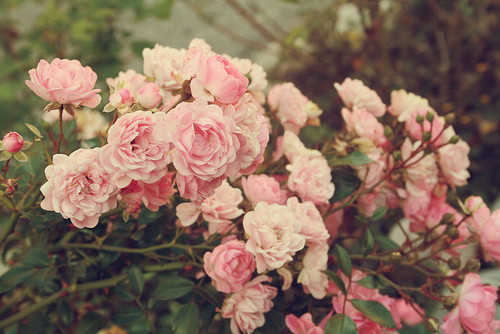



Soft Wild Rose Memory Blog.
The vision for Soft Wild Rose Memory Blog,
immerses a natural lifestyle, a calm & vivid oasis, while embracing
nature, learning, harmony, savoring, meditation,
and also it involves nurturing the subconscious
& senses with healing, nurturing imagery, inspiration..
- Soft Wild Rose Memory. {Music} Posts
- Add Cinnamon flower :) Powder To Your Tea and Coffee And This Will Happen
- Aman Hanoi
- Drinking tea at a traditional Korean Tea House (전통 찻집) in Insadong, Seoul, Korea
- Le Mirador, Montreux, Switzerland
- JAPANESE TEA FARM IN SHIZUOKA����
- Maesil extract (Maesil-cheong) is used widely in traditional Korean cuisine as a sweetener. It's made from maesil (aka green plums) Japanese apricot
- Soft Wild Rose Memory. {Birdsong) Posts
- Soft Wild Rose Memory, {Health Posts}
- Soft Wild Rose Memory., {Organic Life} Posts
- Mariage D'Amour
- Masai Mara - safari adventure in a wildlife paradise - Predators, big herds and wildebeest migration
- Old Town of Lijiang, Yunnan, China)
- Oriental Posts, Soft Wild Rose Memory
- The Ryokan Collection
Soft Wild Rose Memory. All Postings.
Soft Wild Rose Memory. All Postings.
-
-
-
-
-
-
-
-
-
- 0:44 / 2:48 Salad Recipe: Arugula Salad with Lemon...
- Anna Karenina with my Scarlette Starlette..:)
- Annette Hanshaw - I'm Following You (1930)--pretty...
- Annette Hanshaw~Cooking Breakfast for the One I Lo...
- Lemon Cupcakes with a Lavender Icing...
- Simple and Delicious Apricot Jam...
- Roasted stuffed Quail Home Cooking ..
- Stuffed Quail with Pancetta, Butternut and Leeks w...
- Stuffed Quail and Wild Mushroom Risotto ;)
- Stuffed Quail with Rosemary on Sporting Chef TV
- How To Make French Hot Chocolate At Home...
- Sunday Munchies-How to Make Creamy Oatmeal Corn wi...
- Food Wishes Recipes - Roast Quail with Cured Lemon...
- Tarte Flambée-recipe :)
- How to Make Tarte Flambée - The real Flammekuech.....
- Master Class: Andre Soltner Makes Bacheofe..
- Duck with cherries (canard aux cerises) - French C...
- Hyolmo/Helambu traditional Himalayan smashed potat...
- Tibetan Food in Thimphu - Bhutan Food and Travel G...
- How to Make Authentic Seafood Paella | Seafood Recipe
- Linguine with Clams | Epicurious-Yummy :)
- Yaourt à la confiture...
- My top 10: The most romantic scenes in movies...
- Goat milk soap with honey...
- Thai Center: Background Oriental Music for Spa Wel...
- Sauna Music* Thai Spa Music, Healing And Relaxing ...
- Grindelwald, Switzerland....
- LIFESTYLEHOTEL Parkhotel Bellevue & Spa, Adelboden...
- Cleansing for mind & senses..
- Quotes on being Genuine,...
- Waltz of Roses ~ Eugen Doga - Gramofon¨¨˜"°º★¸.•´★...
- Wild Hearts Can't Be Broken - 35mm - HD
- Wild Hearts Can't Be Broken...
- Legends Of The Fall - The Ludlows (Lendas da Paixão)
- Sensitivity to people & energy...
- Symphony from one of my favorite movies, "Legends ...
- Native American mothers ask...
- Native American Families Seek Justice For Women Mi...
- A Conversation With Native Americans on Race | Op-...
- 'They come here to hunt': Surviving sexual violenc...
- America is a stolen country'...
- Wind River...what started my passion of the injust...
- Wald und Wiesen...
- Truth & Thoughts...
- Risotto ...yum =)
- Montreux Roses...
- Sketch...
- Charming discoveries , Switz....
- Ella & Louis - Cheek to Cheek
- Pretty...
- Françoise Hardy - Mon amie la rose (1965)....
- Rosiers Sous L'arbre....
- My Home of many months, Beau Rivage, Geneva....jus...
- I just become this sweet little gothic kitten doll...
- Life in Switz photos....with Adelia & Feia..
- In front of Chateau de Penthes , Geneva.. :)
- My adorable fur children, summertime , Switzerland :)
- Berries are so high in natural antioxidants & yumm...
- Summer Picnics in Maine...
- Introduction to Austrian wine: History, wine regio...
- The South Styrian Wine Road in Austria
- One of my favorites:) Pouilly-Fuissé, explained by...
- Guild of Sommeliers on the Wines of Alsace
- Guild of Sommeliers on the Wines of Alsace
- Tarte Flambée - The Cream, Bacon and onion Alsatia...
- How to Make Mario Batali's Alsatian Tarte Flambe |...
- A Perfect Match: Alsatian Three-Meat Casserole wit...
- Chef David preparing Paella in Malaga, Andalucia, ...
- Andalucian Tapas =)
- One of the most beautiful spanish guitar song ever
- Vengo flamenco gypsies dancing spain spanish music...
- MALAGUENA FLAMENCO SPAIN GUITAR ANDALUCIA GRANADA ...
- spanish arabic fusion music-oud vs guitar
- Andalucia is always so warm ;) exciting, interesti...
- Bulgaria beckons to my soul...:)
- Thracian Plain, Bulgaria: Valley of the Roses
- Meditation...
- Relaxing Piano Background Music Instrumental - Swi...
- Gimmelwald, Switzerland: Best of the Alps
- Hotel Le Mirador Resort & Spa
- My favorite romantic & healing haven...:)
- Thermes Parc Spa Hôtel Switzerland | First Ethical...
- A really wonderful healing escape....Grand Resort ...
- Being in a constant relationship...
- In relationships...
- What was the best day of your life....
- Sometimes...
- White tea Bai Hao Yin Zhen - tea tasting Fresh Chi...
- Good VS Bad Tea - Bai Hao Yin Zhen (Silver Needle)
- How to Brew Huang Zhi Xiang Oolong Tea...
- Beautiful Chinese Music - Harvest of Tea
- Beautiful Chinese Music - Bamboo Flute...
- Switzerland nature is so lovely..this photo from e...
- In one of my serene, lovely.. places, Vevey, Switz...
- Lausanne, Beau Rivage...
- I still remember how i loved this sun dress, & eve...
- When I was completely Au Naturale ...i dont know w...
- Love of Swiss chocolate also..just so creamy :)
- When life was so serene in Switzerland..
- 🌷 Waltz of Roses, Waltz of Love 🌷...
-



Artisan+Appreciative+Savoring Lifestyle, of Western & Eastern philosophy, approach, art, song, wellbeing, design... “You were born a child of light’s wonderful secret— you return to the beauty you have always been.”



Soft Wild Rose Memory Blog.













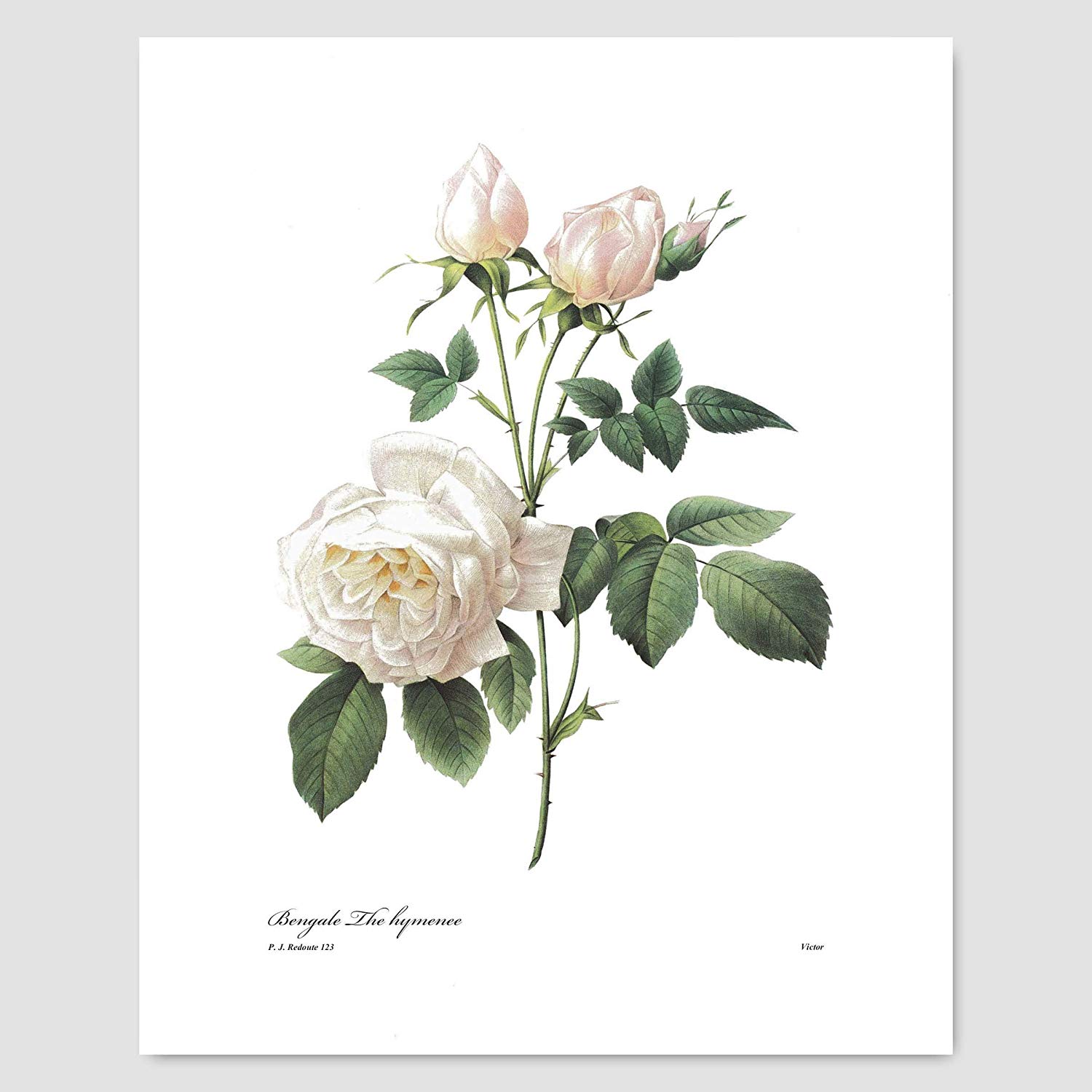
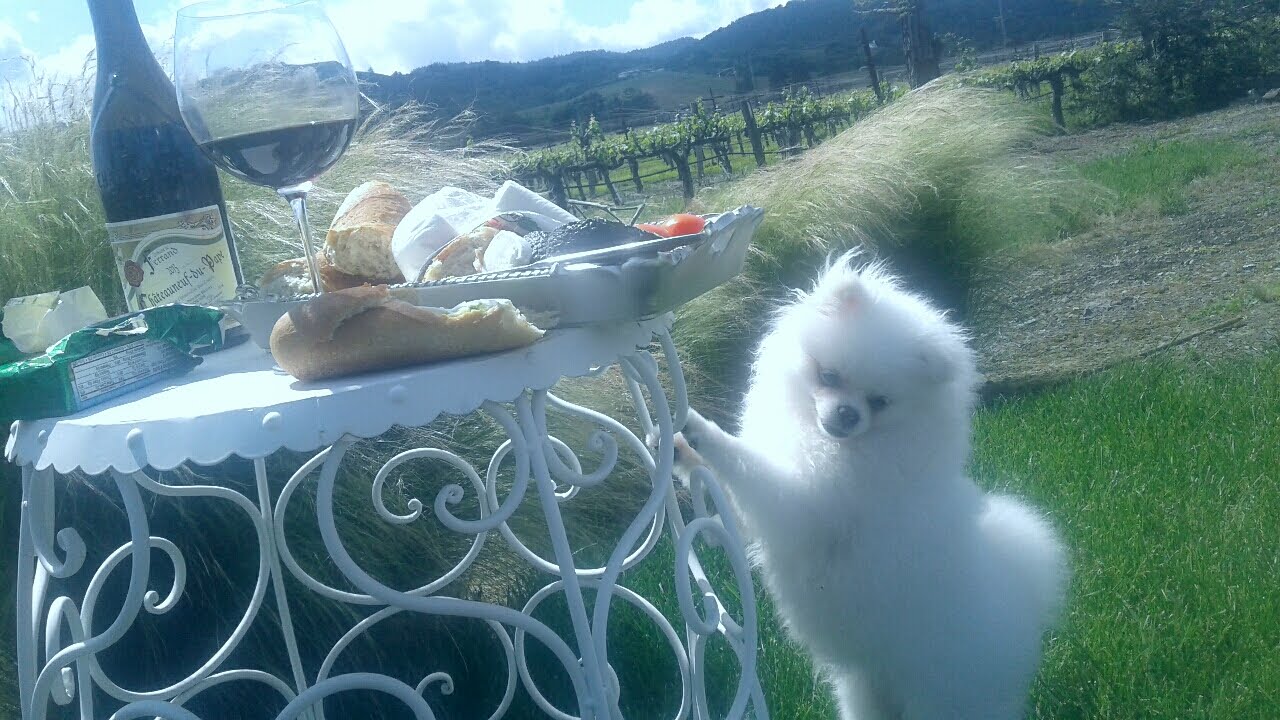
Remember...
"Remember the life...and the flowers..."
-Lilia Kalinina...
Love the world as your own self; then you can truly care for all things. Lao Tzu
....
"When one tugs at a single thing in nature, he finds it attached to the rest of the world." John Muir
Soul...
"Oh...but the soul speaks...it always speaks..."
-Lilia Kalinina

Life...
“Two things you will never have to chase: True friends & true love.”
― Mandy Hale
― Mandy Hale
― C. JoyBell C.
“You only need one man to love you. But him to love you free like a wildfire, crazy like the moon, always like tomorrow, sudden like an inhale and overcoming like the tides. Only one man and all of this.”
― C. JoyBell C.
― C. JoyBell C.
Nature...
"The lover of nature is he whose inward and outward senses are still truly adjusted to each other; who has retained the spirit of infancy even into the era of manhood. His intercourse with heaven and earth, becomes part of his daily food. " Ralph Waldo Emerson






Popular Posts
Hanafubuki Onsen..A place I love . . . food beyond expectations . . . a walk to the shore that is amazing . . . you have to see this . . .
- Get link
- X
- Other Apps

Wikipedia
Search results
Translate
- Get link
- X
- Other Apps
Native American mothers ask...
Native American mothers ask: 'What do I tell my daughter when she is raped?'
https://www.theguardian.com/world/2016/mar/17/native-american-rape-reservations-sex-assault
Recognizing that the sexual assault of many indigenous women is ‘not if but when’, a new graphic novel is teaching the ABCs of rape
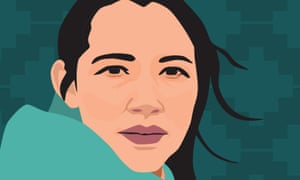
“What do I tell my daughter when she is raped?”
This was the question posed to Charon Asetoyer, CEO of the Native American Women’s Health Education Resource Center by a young mother on the Yankton Sioux Reservation in Lake Andes, South Dakota.
“The feeling ... I can’t even begin to explain how that made me feel. Not ifshe’s raped, but when she’s raped,” said Asetoyer of the Comanche tribe. “We’re aware of how bad the problem is in our reservation community, but when somebody puts it to you that way, you realize it’s even worse than you thought it was.”
Asetoyer is well aware that Native American women are 2.5 times more likely to experience sexual assault crimes than all other races in the US and that more than one in three Native American women report having been raped during their lifetime. She speaks with survivors of sexual assault in her community every day.
Recognizing an immediate need to prepare and support indigenous young women in the likely event of a sexual assault, Asetoyer and her colleagues teamed up with graphic designer Lucy M Bonner to create a graphic novel entitled, “What To Do When You’re Raped: An ABC Handbook for Native Girls”. The book is available to download free online or to order in print.
Each letter of the alphabet starts a conversation about rape trauma and where to go for help. The book was written in easy to understand language so as to make it accessible to everyone, including children.
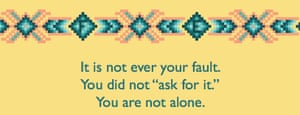
The letter “C” is for: “Currently, more than 9 out of 10 Native girls have been forced to have sex when they don’t want to, and that is always rape, even if it’s on a date.”
The letter “F” is for: “It is not ever your fault. You did not ‘ask for it.’ You are not alone.”
Advertisement
The letter “G” is for: “Get emergency contraception.” Until 15 October 2015, Indian Health Service pharmacies and clinics did not have policies in place to follow the federal mandate making Plan B available over the counter. Asetoyer says many native women and girls don’t know that this is an option available to them or face resistance when they ask for it from their primary healthcare provider. The ABC handbook outlines their reproductive rights: “By law they have to give it to you no matter what, and you don’t have to give them a reason, see a doctor, have an exam, or get a prescription.”
Maya Torralba of the Kiowa, Comanche and Wichita tribes says she could have used a book like this when she was a girl. At the age of 14, she was roofied and raped by an acquaintance. He was never arrested and she never received counseling. She is now an advocate for young women in Anadarko, Oklahoma.
“My family and I just didn’t know how to handle that or how to even talk about it. It was really traumatic, of course. If somebody had been able to hand me that book at that point it would have been so much help,” Torralba said. “We need to speak out more about our survival and how we’ve been able to get better and to heal. To make it known, so that when this happens to younger native women, they know that they can talk to somebody. They know that it’s not something to just sweep under the rug. It’s OK to get help.”
According to the US Department of Justice, in at least 86% of the reported cases of rape or sexual assault against American Indian and Alaska Native women, survivors report that the perpetrators are non-Indian men.
“The truckers come in and out, the ranchers and farmers come to party on the weekend. We have our casinos, we have the hunters and fishermen, we have the big biker rally,” Asetoyer said. “Then there are the man camps up in North Dakota on the oil rigs where pimps are trafficking native girls up from South Dakota.”
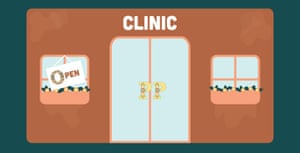
A report by Amnesty International in 2007 found that native victims of sexual violence get caught in a complex jurisdictional maze between tribal, state and federal authorities.
“Three main factors determine which of these justice systems has authority to prosecute such crimes: whether the victim is a member of a federally recognized tribe or not; whether the accused is a member of a federally recognized tribe or not; and whether the offence took place on tribal land or not. The answers to these questions are often not self-evident and there can be significant delays while police, lawyers and courts establish who has jurisdiction over a particular crime. The result can be such confusion and uncertainty that no one intervenes, and survivors of sexual violence are denied access to justice,” Amnesty International wrote in the report.
The reauthorization of the Violence Against Women Act in 2013 empowered tribes for the first time to investigate and criminally prosecute non-natives in cases of domestic abuse. However, tribes still have no jurisdiction over non-natives who are perpetrators of sexual violence.
At a congressional briefing last month on the impact of VAWA 2013 in Indian country, tribal leaders spoke out on this issue. “Non-Indian offenders had the feeling they could do what they wanted to because there was no way they would be prosecuted. We could call county law enforcement but their response was very long or they would not come at all,” said Glen Gobin, vice chairman of the Tulalip Indian Tribes.
“Now the tribe can prosecute non-Indian offenders, but the jurisdiction is limited to certain crimes, it does not protect victims of stranger rape, and does not protect children or other family members.”
Asetoyer and Cherokee activist Pamela Kingfisher recently presented the ABC handbook at the Take Root Conference in Norman, Oklahoma. Kingfisher says the response was overwhelming.
“Every single native woman who picked up the handbook disclosed her own personal story of sexual abuse,” Kingfisher said. “It makes me sad that we’re teaching the ABCs of rape. Who’s teaching the men? What’s going to change the rape culture of this country?”
- Get link
- X
- Other Apps
Comments
Post a Comment